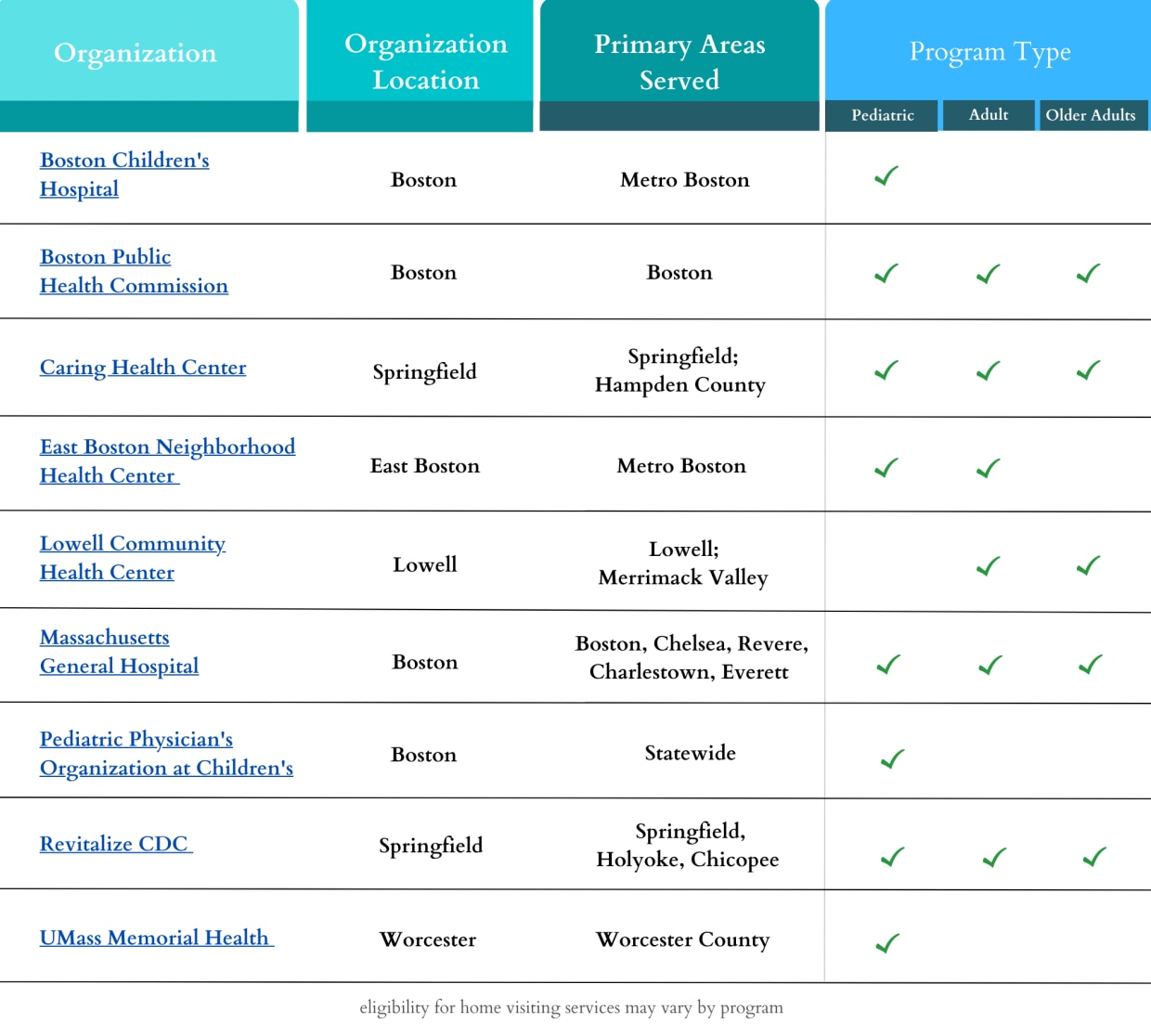Asthma Home Visiting and CHWs
Asthma home visiting is an evidence-based model designed to support high-risk pediatric patients with uncontrolled or poorly controlled asthma and recent history of emergency room use. The model consists of a series of visits to the home by a trained Community Health Worker (CHW). CHWs are public health workers who apply their unique understanding of the experience, language, and culture of the populations they serve while providing care. In the context of asthma home visits, CHWs provide tailored education and support that individuals and caregivers need to improve asthma outcomes and patient and caregiver quality of life.
In this model, CHWs work as part of the healthcare team to improve communication among patients, their caregiver(s), and the clinical team, and to identify and address asthma triggers through home visiting.
Throughout the home visiting process, CHWs can provide asthma self-management education, support the understanding of medications and appropriate medication use, and reinforce the asthma action plan created by clinical providers. The CHW also helps to identify and implement evidence-based strategies to reduce asthma triggers in the home, including advocating for property owner action(s) and connecting households to community resources or low-cost supplies to reduce asthma triggers, such as mattress covers, HEPA vacuum, etc. if available.
CHWs can be located in diverse clinical settings where they are closely integrated into the primary or specialty care clinical team, or they may work in a community-based program. Clinical settings can include community health centers, hospital-based clinics, private pediatric offices, and clinical provider groups. CHWs can be centrally managed for multiple practices. Regardless of where CHW is located, strong communication with primary care providers is a key component to the model’s success.
Learn more about CHW-led asthma home visiting
Learn more about Community Health Workers
The Massachusetts Asthma Home Visiting Directory
In 2023, the Asthma Prevention and Control Program (APCP) launched a Massachusetts Asthma Home Visiting Program Directory.
This directory provides basic information about the Asthma Home Visiting Programs in Massachusetts including the organization, organization location, primary service area, and type of home visiting program.
The Directory was last updated in March 2025. Recognizing that home visiting programs evolve and new programs may be established, APCP routinely works to survey statewide to keep the directory accurate. If any information listed here needs to be updated or changed for your program, or you are aware of other programs that can be added to this list please contact us at DPH-Asthma@mass.gov.
Access the organization websites: Home Visiting Directory (PDF) | (DOCX)
Seeking Additional Support? The Asthma Prevention and Control Program can offer one-on-one support to assist asthma home visiting programs in overcoming common challenges in establishing and implementing home visiting programs, including strategies to maximize intervention effectiveness and reach.
Additional Resources
-
Open TXT file, 154.74 KB, The Massachusetts Community Health Worker Protocol Manual (English, TXT 154.74 KB)
-
Open PDF file, 18.05 MB, The Massachusetts Community Health Worker Protocol Manual (English, PDF 18.05 MB)
-
Open TXT file, 92.72 KB, The Massachusetts Community Health Worker Program Summary (English, TXT 92.72 KB)
-
Open PDF file, 8.99 MB, The Massachusetts Community Health Worker Program Summary (English, PDF 8.99 MB)
- The Massachusetts Asthma Action Partnership
